Home> Company News> Martin Guitars: A Must-Have for Acoustic Guitar Enthusiasts
- AddressShan Dong Province Weifang City
- Factory AddressShan Dong Province Weifang City
- Worktime9:00am~6:00pm
- Phone(Working Time)+8613305315989
- Phone(Nonworking Time)+8613305315989
Martin Guitars: A Must-Have for Acoustic Guitar Enthusiasts
2023-05-05 15:20:26Martin guitars have a long and distinguished history in the world of acoustic guitars. The Martin brand was founded in 1833 by Christian Frederick Martin Sr. and has been a leading name in the industry ever since. Today, Martin guitars are considered some of the finest acoustic guitars available, known for their superior craftsmanship and exceptional sound quality. In this article, we will explore the history and legacy of Martin guitars, the different types of Martin guitars available, their key features and specifications, and their significance in the context of acoustic guitar history.
The history of Martin guitars can be traced back to Germany, where Christian Frederick Martin Sr. was born in 1796. He learned to make guitars from his father, who was also a guitar maker. Martin moved to America in 1833 and established his own guitar making business in New York City. He later moved his business to Nazareth, Pennsylvania, where it remains to this day.
Martin guitars have been used by many famous musicians over the years, including Bob Dylan, Neil Young, Eric Clapton, and Johnny Cash. The Martin name has become synonymous with quality, and their guitars are highly sought after by musicians and collectors alike.
Martin guitars come in a variety of different types, including dreadnoughts, OM and 000 models, auditorium models, jumbo models, and more. Each type of Martin guitar has its own unique characteristics and sound. Martin guitars are known for their exceptional craftsmanship, attention to detail, and use of high-quality materials such as spruce, mahogany, and rosewood.
One of the key features of Martin guitars is their bracing system. Martin guitars use a scalloped X-bracing system, which helps to produce a rich and balanced tone. Martin guitars also feature a dovetail neck joint, which adds to their overall stability and durability.
Martin guitars have played an important role in the development of acoustic guitar history. The Martin name has become synonymous with quality, and their guitars are widely regarded as some of the finest acoustic guitars available. Martin guitars have been used by musicians of all genres and have played a key role in the development of popular music.
In conclusion, Martin guitars have a long and storied history in the world of acoustic guitars. Their exceptional craftsmanship, attention to detail, and use of high-quality materials have made them one of the most respected names in the industry. Whether you are a professional musician or a casual player, a Martin guitar is a sound investment that is sure to bring you years of enjoyment.

Construction and Design of Martin Guitars
Martin guitars are known for their exceptional quality, craftsmanship, and attention to detail. The construction and design of Martin guitars play a significant role in their renowned sound and tone.
Materials Used Martin guitars are made with a variety of high-quality materials, including Sitka spruce, mahogany, rosewood, and ebony. These woods are selected for their tonal properties, strength, and durability.
Sitka spruce is commonly used for the top of Martin guitars due to its excellent balance between strength and flexibility, which allows for optimal sound projection and resonance. Mahogany is a common choice for the back and sides of Martin guitars due to its rich, warm tone.
Rosewood is often used for fingerboards and bridges due to its hardness and stability, which allows for precise intonation and comfortable playing. Ebony is another popular choice for fingerboards and bridges, known for its smooth texture and bright sound.
Construction Methods Martin guitars are built using traditional techniques that have been refined over generations. The company employs a team of skilled luthiers who meticulously craft each guitar by hand.
One of the key design elements of Martin guitars is their X-bracing system. This system, which involves two intersecting braces beneath the guitar top, allows for greater stability and tonal balance. The placement and shape of the braces are carefully designed to enhance the guitar's sound quality.
In addition to the X-bracing system, Martin guitars often feature other design elements such as scalloped bracing, forward shifted bracing, and cutaway designs. These elements are used to further enhance the guitar's sound and playability.
Body Shape Martin guitars come in a variety of body shapes, each with its unique tonal characteristics and playability. The most popular Martin body shapes are the Dreadnought, the Grand Auditorium, and the 000.
The Dreadnought is the most common body shape, known for its powerful sound and strong bass response. The Grand Auditorium is a mid-sized body shape that offers a balanced tone and versatility for a wide range of playing styles. The 000 is a smaller body shape that offers a more intimate sound with a focus on midrange tones.
Overall, the construction and design of Martin guitars reflect a commitment to quality and attention to detail. These guitars are built to last and deliver exceptional sound and playability, making them a popular choice among musicians of all genres and skill levels.
Sound and Tone of Martin Guitars
Martin guitars are renowned for their exceptional sound quality and tone. The sound of a Martin guitar is often described as warm, rich, and full-bodied, with a well-balanced tone across the entire frequency spectrum. This is due in part to the high-quality tonewoods used in the construction of Martin guitars, as well as the company's proprietary bracing patterns and construction techniques.
One of the most popular tonewoods used in Martin guitars is Sitka spruce, which is prized for its strong, clear tone and excellent projection. Other tonewoods commonly used in Martin guitars include mahogany, rosewood, and maple, each of which offers a unique tonal character that can be tailored to the preferences of the individual player.
Martin guitars are also known for their exceptional sustain, which is the length of time a note continues to sound after it is played. This is due in part to the company's use of scalloped bracing patterns, which allow the top of the guitar to vibrate more freely and produce a longer sustain.
In terms of tone, Martin guitars are often described as having a "sweet spot" around the midrange frequencies, where the guitar's tone is particularly warm and resonant. This makes Martin guitars particularly well-suited for playing fingerstyle guitar, as well as for accompanying vocals.
When compared to other guitar brands and models, Martin guitars are consistently ranked among the best in terms of sound quality and tone. Many professional musicians, including Eric Clapton, Ed Sheeran, and John Mayer, are known for their love of Martin guitars and have used them extensively in their music.
In expert reviews and player feedback, Martin guitars are often praised for their balanced tonal character, with no one frequency range overpowering the others. They are also known for their clarity and definition, which allows individual notes and chords to be heard clearly and distinctly, even in complex arrangements.
Overall, the sound and tone of Martin guitars are a testament to the company's commitment to quality and craftsmanship. Whether playing in a small acoustic setting or on a large stage, a Martin guitar is sure to deliver exceptional sound and tone that will be appreciated by players and listeners alike.
Playing Martin Guitars
Martin guitars are known for their excellent playability and comfort, which has helped them to become a popular choice for both amateur and professional musicians alike. One of the key factors that contribute to the playability of Martin guitars is their ergonomic design. Martin guitars are designed to be comfortable to hold and easy to play, which makes them an ideal choice for musicians who spend a lot of time playing their instruments.
The neck of a Martin guitar is typically tapered, which means that it becomes progressively narrower as it approaches the headstock. This design helps to make it easier to fret chords and notes, as the strings are closer together at the top of the neck. Additionally, Martin guitars have a low action, which means that the strings are set close to the fretboard. This allows for easier fretting and makes it easier to play fast and intricate passages.
Another key factor that contributes to the playability of Martin guitars is their intonation. Intonation refers to the accuracy of the pitch of each note as it is played up the fretboard. Martin guitars are known for having excellent intonation, which makes them an ideal choice for musicians who demand precision and accuracy from their instruments.
Overall, Martin guitars are designed to be easy to play and comfortable to hold, which makes them an ideal choice for musicians of all skill levels. Whether you are a beginner or a seasoned professional, a Martin guitar is sure to provide you with a comfortable playing experience that will allow you to focus on your music and get the most out of your instrument.
The Value and Rarity of Martin Guitars
Martin guitars are widely known for their quality craftsmanship, exceptional sound, and timeless designs. These factors, combined with the brand's long and storied history, have made Martin guitars highly sought after by musicians and collectors alike. As a result, Martin guitars often command high prices on the market, and some models are considered rare and highly valuable.
The value of a Martin guitar is influenced by several factors, including its age, condition, rarity, and historical significance. Vintage Martin guitars, for example, are highly prized by collectors due to their rarity and historical significance. These guitars were crafted during specific periods of Martin's history and are highly sought after by collectors due to their unique features and designs.
The rarity of a Martin guitar also affects its value. Some Martin models were produced in limited numbers, making them highly coveted by collectors. For example, the Martin D-45 is widely considered one of the rarest and most valuable Martin models due to its limited production numbers and intricate design features.
The market value of Martin guitars can fluctuate over time based on supply and demand. However, Martin guitars are generally considered to hold their value well, and many vintage models have increased in value over time. Some collectors even view Martin guitars as investments, with the potential for significant returns over time.
It's important to note that while Martin guitars can be highly valuable, their value is not solely determined by their monetary worth. For many musicians, a Martin guitar represents a significant investment in their craft, and the emotional attachment to the instrument can be just as important as its market value.
Overall, the value and rarity of Martin guitars are a testament to the brand's legacy and enduring popularity among musicians and collectors alike. Whether you're a seasoned collector or a beginner guitarist, owning a Martin guitar is an investment in both your craft and the rich history of acoustic guitar music.
Maintaining and Caring for Martin Guitars
Martin guitars are renowned for their superior craftsmanship and quality materials, but they still require proper maintenance and care to ensure they continue to perform at their best. Here are some tips on how to maintain and care for your Martin guitar:
Cleaning Your Martin Guitar
Regular cleaning is essential to keep your Martin guitar in good condition. Here are some tips on how to clean your guitar:
- Use a soft cloth or microfiber towel to wipe down the guitar after each use to remove dirt, sweat, and oil.
- Use a guitar polish or cleaner designed specifically for acoustic guitars to clean the body and neck of your guitar. Avoid using furniture polish, as it can damage the finish of your guitar.
- Use a clean, dry cloth to wipe off excess polish or cleaner.
- Avoid getting water or cleaning solution on the fretboard or inside the guitar body, as this can damage the wood.
Storing Your Martin Guitar
Proper storage is essential to keep your Martin guitar in good condition. Here are some tips on how to store your guitar:
- Always store your guitar in its case when not in use. This will protect it from dust, humidity, and temperature changes.
- Avoid storing your guitar in direct sunlight or near a heat source, such as a radiator or heater.
- Use a humidifier in your guitar case to maintain the proper humidity level. This is especially important during the winter months when indoor heating can cause the air to become dry and can lead to cracking or warping of the wood.
Maintaining Your Martin Guitar
Regular maintenance is essential to keep your Martin guitar in good condition and to prevent damage. Here are some tips on how to maintain your guitar:
- Get your guitar professionally serviced at least once a year. A professional guitar technician can check the neck, frets, and tuning machines, and can make any necessary adjustments.
- Replace your guitar strings regularly. Old strings can cause the guitar to sound dull and can lead to intonation problems. How often you should change the strings depends on how frequently you play and how much you sweat. As a general rule, it's a good idea to change your strings every three to six months.
- Check the tuning machines and bridge pins regularly. Loose tuning machines or bridge pins can cause tuning problems or even damage to the guitar.
- Avoid exposing your guitar to extreme temperatures or humidity levels. This can cause the wood to crack or warp.
By following these tips, you can help ensure that your Martin guitar stays in top condition and continues to provide you with great sound and playability for years to come.
Buying a Martin Guitar
Purchasing a Martin guitar can be a significant investment, and it is essential to make an informed decision to ensure that you get the best value for your money. Here are some tips to help you navigate the buying process:
-
Research: Before making any purchase, it's essential to do your research. Learn about the different types of Martin guitars available and their features and specifications. Research the price range for the guitar you want, and familiarize yourself with the different models available in that price range.
-
Buy from a reputable dealer: When purchasing a Martin guitar, it's important to buy from a reputable dealer. Martin has an extensive network of authorized dealers worldwide who are trained and authorized to sell Martin guitars. These dealers offer a warranty and after-sales service, and they can ensure that the guitar you buy is authentic and in good condition.
-
Consider buying used: Buying a used Martin guitar can be an excellent way to save money and get a good deal. However, when buying a used guitar, it's important to be careful and inspect the guitar thoroughly to ensure that it is in good condition.
-
Check for authenticity: With the rise in counterfeit guitars, it's important to check the authenticity of a Martin guitar before purchasing it. Look for details like the serial number, headstock logo, and label inside the guitar to ensure that it is a genuine Martin guitar.
-
Play the guitar: Before making a purchase, it's essential to play the guitar to get a feel for its sound and playability. Playing the guitar also allows you to test for any issues or defects that might not be visible at first glance.
-
Consider the price: Martin guitars can be expensive, and it's important to consider the price when making a purchase. While the price of a guitar is not always an indicator of its quality, it's important to ensure that you are getting a fair price for the guitar you want.
-
Check the guitar's condition: Whether you are buying a new or used guitar, it's important to check its condition. Look for any signs of damage, wear, or defects and ask the seller about any repairs or modifications that have been made to the guitar.
-
Test the guitar in different settings: When testing a guitar, it's important to play it in different settings to get a sense of its sound and versatility. Play the guitar in a quiet room, a noisy room, and with other musicians to see how it performs in different environments.
-
Consider your needs: When purchasing a Martin guitar, it's important to consider your needs. Are you a beginner or an experienced player? Do you need a guitar for recording, live performances, or casual playing? Consider your needs and choose a guitar that meets those needs.
-
Look for deals and discounts: Finally, consider looking for deals and discounts when purchasing a Martin guitar. Many dealers offer promotions, discounts, and financing options that can help you save money on your purchase. Be sure to take advantage of these opportunities when they arise.
By following these tips, you can make an informed decision when purchasing a Martin guitar and ensure that you get the best value for your money.
Martin Guitars in Popular Music
Martin Guitars have played a significant role in popular music since their introduction in the 19th century. From folk to country, rock to blues, Martin guitars have been the go-to instrument for musicians across all genres.
One of the most famous users of Martin guitars is folk legend Bob Dylan. Dylan has used a Martin D-28 and a Martin 00-18 throughout his career, and his iconic song "Blowin' in the Wind" was even written on a Martin guitar. Another legendary musician, Johnny Cash, was also known to play a Martin D-35.
In the world of rock music, Kurt Cobain of Nirvana famously played a Martin D-18E during the band's MTV Unplugged performance. The Martin D-28 was also used by Jimmy Page of Led Zeppelin, and Eric Clapton has been known to play a Martin 000-28.
In country music, Martin guitars have been a staple for decades. Willie Nelson is known for his use of the Martin N-20 nylon-string guitar, and Johnny Cash's signature Martin D-35 has become a coveted collector's item.

Overall, Martin guitars have a rich history in popular music and continue to be a popular choice for musicians across all genres. Their distinct sound and design elements have made them a go-to instrument for many famous musicians, and their legacy in popular music is sure to continue for years to come.
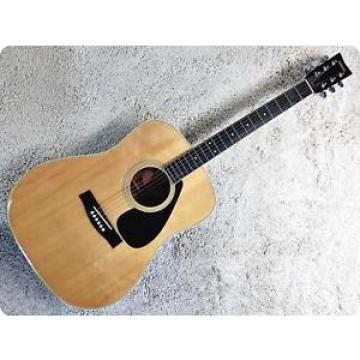 YAMAHA martin guitar strings acoustic medium FG-201B martin guitar accessories Japan martin Vintage acoustic guitar strings martin Acoustic martin acoustic guitars Guitar AG40 W40 GA057 RARE
YAMAHA martin guitar strings acoustic medium FG-201B martin guitar accessories Japan martin Vintage acoustic guitar strings martin Acoustic martin acoustic guitars Guitar AG40 W40 GA057 RARE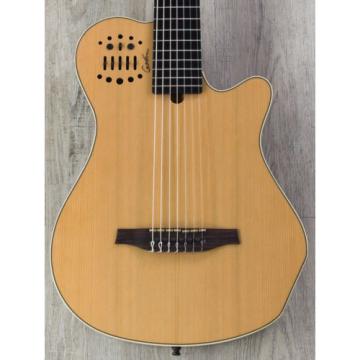 Godin acoustic guitar martin MultiAc martin guitar accessories Grand dreadnought acoustic guitar Concert martin guitar strings 7 martin d45 SA Acoustic-Electric 7-String Guitar, Natural
Godin acoustic guitar martin MultiAc martin guitar accessories Grand dreadnought acoustic guitar Concert martin guitar strings 7 martin d45 SA Acoustic-Electric 7-String Guitar, Natural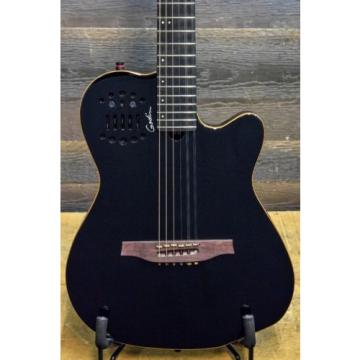 Godin acoustic guitar martin A10 guitar strings martin Black martin guitar accessories Steel martin d45 HG martin guitar strings acoustic medium "SF" 10-String SA El.-Acoustic Guitar w/ Bag #13342127
Godin acoustic guitar martin A10 guitar strings martin Black martin guitar accessories Steel martin d45 HG martin guitar strings acoustic medium "SF" 10-String SA El.-Acoustic Guitar w/ Bag #13342127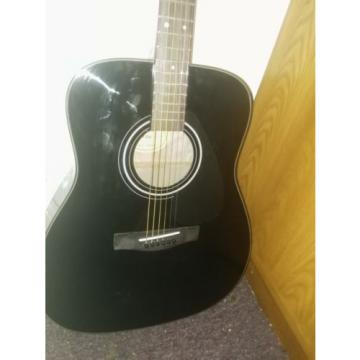 Yamaha martin d45 Acoustic martin guitar strings acoustic medium Guitar acoustic guitar martin martin guitars martin acoustic guitars
Yamaha martin d45 Acoustic martin guitar strings acoustic medium Guitar acoustic guitar martin martin guitars martin acoustic guitars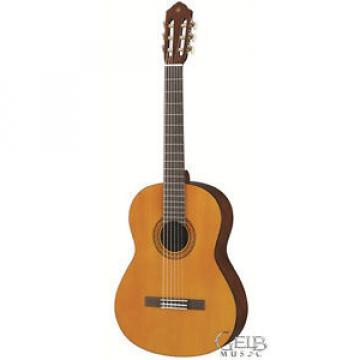 Yamaha acoustic guitar strings martin C40II martin d45 Classical martin guitar strings acoustic medium Acoustic martin acoustic strings Guitar dreadnought acoustic guitar - C40II
Yamaha acoustic guitar strings martin C40II martin d45 Classical martin guitar strings acoustic medium Acoustic martin acoustic strings Guitar dreadnought acoustic guitar - C40II
